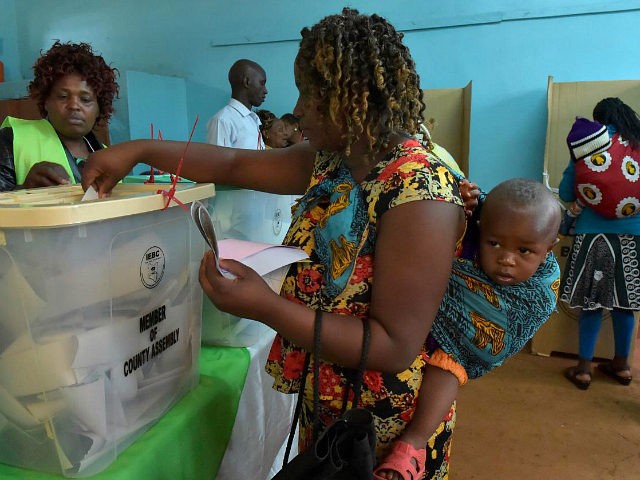Around 50 percent of African children are not registered at birth and effectively stateless, often meaning they cannot access essential social services such as healthcare and education, a United Nations study revealed Tuesday.
Speaking at a five-day conference in Lusaka attended by African ministers responsible for civil registration, the head of the U.N. in Zambia, Coumbia Mar Gadio, said failing to register children as citizens makes it harder for them to force their way out of poverty.
“Many African countries still lack adequate viable complete and digital registration systems. Unfortunately, more than half of the children in Africa are not registered at birth, a foundation for any citizen registration system,” Mar Gadio said.
He continued:
These are most citizens exposed to poverty and also vulnerabilities. Not being registered, uncounted, and excluded [and] by exception, this affects the ability to enjoy universal human rights and social protection benefits.
Migrants, refugees and those displaced through humanitarian crisis are in particular the vulnerable when they lack identities and travel documents. A complete civil registration system mean millions of African people have come into this world and left without leaving a trace of official records.
Director of the African Statistics Center at the U.N.’s Economic Commission Oliver Chinganya gave a more positive take by noting the “tremendous improvement” in the registration of African children at birth in 42 of Africa’s 45 countries.
“What we have noticed is that 54 percent of the countries have digitalized their civil registration across the continent,” said Chinganya. “We have also noticed that 22 percent of the countries, have now managed to digitalize their national ID systems. Which is a great improvement compared to pre-independence, even some 20 years ago.”
Zambia is one of the countries to have already digitalized its national ID systems, although the country’s Minister of Home Affairs Stephen Kampyongo admitted that they are still struggling to break through into rural communities.
“Despite the progress that has been made in many [African] countries, we still have this identity gap which is quite eminent. This is because of the historical background here and geographic challenges we have,” said Kampyongo. “We still have rural parts of African members states which are geographically challenged access. We are discussing ways and means to address some of those challenges.”
According to the World Economic Forum, as of 2018, there are an estimated 1.1 billion people worldwide who cannot officially prove their identity, half of whom are believed to live in sub-Saharan Africa.
“The repercussions of this pass by unnoticed and often go unreported by the press,” notes the Forum in last year’s report. “IDs are taken for granted by those who have them. But lack of identification creates formidable barriers for each individual affected and creates even larger barriers for the countries they live in.”
“Without strong identification systems, countries can struggle to deliver vital services to people, eliminate duplicate or inefficient programs, and govern effectively,” it continues. “Identification systems form an essential part of a society’s foundation; building a social contract between governments and citizens requires strong identification systems and reliable databases.
Follow Ben Kew on Facebook, Twitter at @ben_kew, or email him at bkew@breitbart.com.

COMMENTS
Please let us know if you're having issues with commenting.